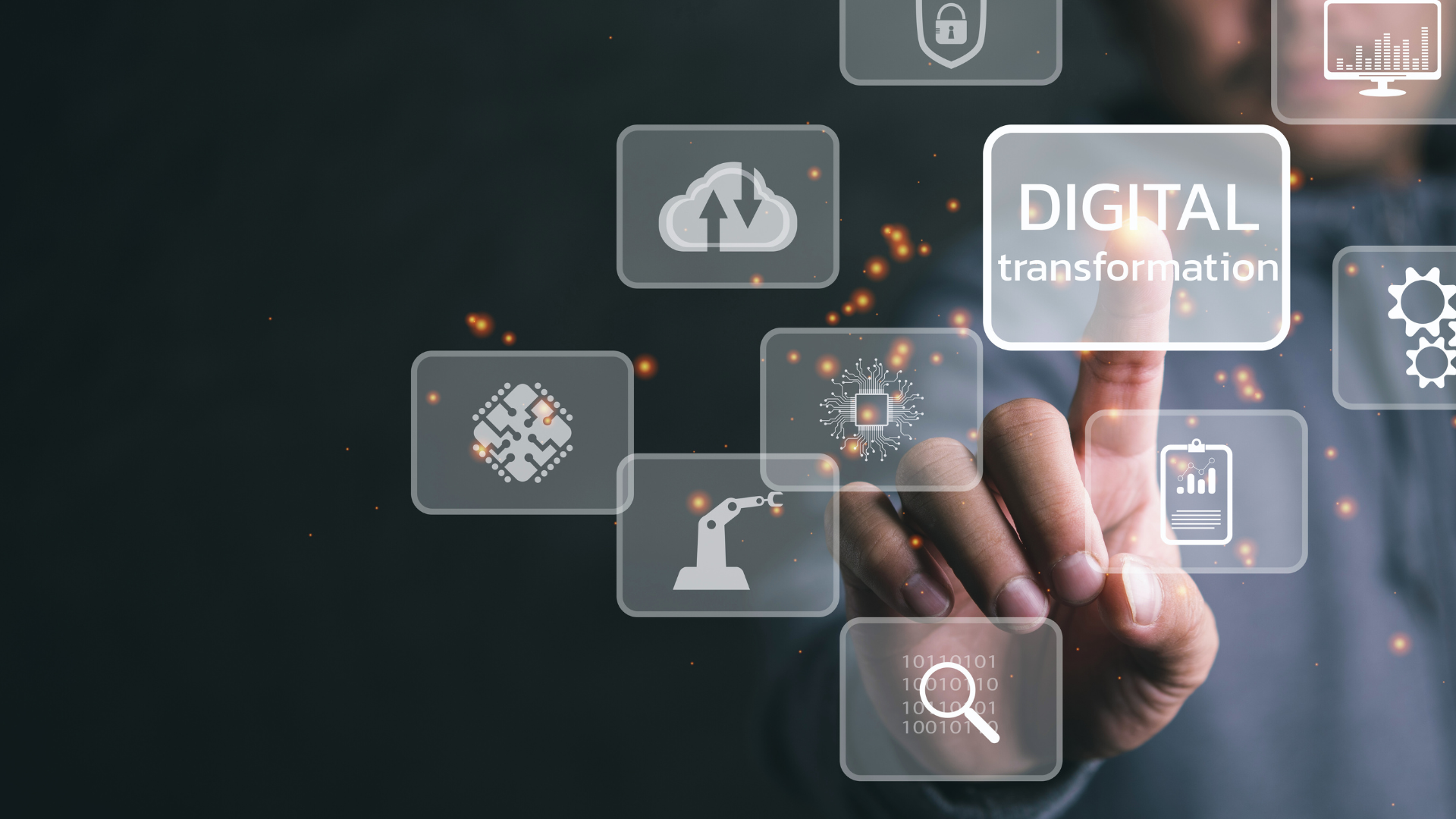Artificial Intelligence (AI) is transforming the world in remarkable ways. From improving efficiency in industries to enhancing everyday lives, this technology has become a key driver of innovation. Numerous examples of AI in action illustrate its revolutionary impact across various sectors.
AI applications are present in routine activities, such as virtual assistants managing schedules, to more complex systems like predictive analytics in healthcare. By automating processes and analysing data, AI not only increases productivity but also improves decision-making.
The integration of AI in business processes leads to more personalised customer experiences and operational efficiency. As society continues to embrace these advancements, understanding the specific examples of AI technology can provide insights into its potential and future trajectory.
Foundational Concepts of AI
Artificial Intelligence (AI) encompasses various core principles, including machine learning and deep learning. Understanding these foundational concepts provides insight into how AI functions and its potential applications.
Understanding AI and Machine Learning
AI refers to the simulation of human intelligence processes by computer systems. This includes learning, reasoning, and self-correction. Machine learning (ML), a subset of AI, focuses on the ability of algorithms to learn from and make predictions based on data.
Machine learning can be divided into three main types:
- Supervised learning: Learned from labelled data.
- Unsupervised learning: Finds patterns in unlabelled data.
- Reinforcement learning: Learned through trial and error.
These approaches enable systems to improve their performance over time by continuously learning from new information.
Role of Algorithms in AI
Algorithms serve as the foundation of AI systems, enabling them to process data and make decisions. They are step-by-step procedures or formulas for solving problems. The choice of algorithm affects the efficiency and accuracy of AI applications.
Common algorithms used in AI include:
- Decision Trees: Model decisions and their possible consequences.
- Neural Networks: Mimic the human brain’s structure to process data.
- Support Vector Machines: Classify data points in high-dimensional space.
Selecting the right algorithm is crucial for tackling specific problems effectively.
Impact of Deep Learning
Deep learning is a specialised form of machine learning that utilises neural networks with multiple layers. This approach allows computers to automatically learn features and patterns in enormous datasets, significantly enhancing their predictive capabilities.
Deep learning has revolutionised areas such as:
- Computer vision: Enables machines to interpret and understand visual data.
- Natural language processing (NLP): Improves machine understanding of human language.
The advances in deep learning have led to the development of applications like voice assistants and image recognition systems, demonstrating its impact across various sectors.
AI Applications Across Industries
AI technology is increasingly being integrated into various sectors, enhancing efficiency and driving innovation. Key industries such as healthcare, finance, retail, and agriculture are seeing significant transformations through AI applications.
Leveraging AI in Healthcare
AI is making strides in healthcare by improving diagnostics, personalising treatment plans, and streamlining administrative tasks. For example, machine learning algorithms analyse medical images, helping radiologists detect anomalies with greater accuracy.
AI also powers predictive analytics to foresee disease outbreaks or patient deterioration. Additionally, chatbots provide instant communication with patients, answering queries and scheduling appointments.
Implementing AI in electronic health records ensures accurate data management and interoperability, ultimately enhancing patient care. This technology promotes a shift from reactive to proactive healthcare.
AI Transforming Finance and Banking
In finance and banking, AI enhances risk management, fraud detection, and customer service. Algorithms can assess credit risk more accurately by analysing vast amounts of data in seconds.
Machine learning models identify unusual transaction patterns, alerting banks to potential fraud. Chatbots in customer service not only answer common queries but can also conduct simple transactions, freeing up human agents for complex cases.
Robo-advisors leverage AI to provide tailored financial advice, making investment management accessible to a broader audience. This technology is transforming the efficiency and effectiveness of financial services.
Retail and E-Commerce Innovations
Artificial Intelligence (AI) is transforming the retail and e-commerce industries by revolutionizing customer experiences, optimizing operations, and streamlining marketing efforts. By leveraging advanced algorithms, businesses can analyze consumer behavior to deliver personalized shopping experiences, such as recommending products that align with individual preferences. This level of personalization not only enhances customer satisfaction but also drives higher sales conversions, making AI an indispensable tool in modern retail.
Beyond recommendation engines and chatbots, retailers are turning to modern analytics tools to convert transaction and loyalty data into operational decisions. Self-service platforms allow merchandising and marketing teams to explore shopper journeys and test hypotheses without waiting on data analysts, revealing patterns around category performance, promotion lift, and repeat purchase behavior. When these insights are tied back to point-of-sale and loyalty systems, stores can more quickly refine assortments and tailor loyalty offers. For teams aiming to accelerate that loop from insight to action, Retail analytics platforms often provide the necessary connectivity and ease of use.
In addition to personalization, AI-powered tools are reshaping customer service through the use of chatbots. These chatbots provide instant support, handle inquiries, and offer tailored product suggestions around the clock, significantly reducing response times and improving customer engagement. For example, many retailers now integrate AI chatbots into their platforms to ensure seamless interactions and better service delivery. This can include the implementation of a FB messenger ai chatbot, which allows businesses to communicate and interact with customers on this messaging platform. This way retailers can reach a broad audience by providing immediate assistance and personalized recommendations. The use of such tools can result in increasing customer loyalty and drive more meaningful interactions.
The fashion industry has also embraced AI innovations for product marketing with tools like AI Fashion Model Generator. These tools allow brands to create realistic digital models to showcase their clothing, eliminating the need for costly and time-intensive traditional photoshoots. This approach not only reduces expenses but also accelerates content creation, enabling brands to stay competitive in a fast-paced market. By combining personalization, operational efficiency, and innovative marketing strategies, AI is redefining the future of retail and e-commerce industries.
Automation in Agriculture and Manufacturing
AI in agriculture focuses on improving crop yields and optimising resource use. Precision agriculture uses AI algorithms to analyse data from various sources, such as soil sensors and satellite images, allowing farmers to make informed decisions on planting and harvesting.
In manufacturing, AI-driven automation streamlines production processes. Smart factories implement AI to enhance supply chain management, reduce downtimes, and predict equipment failures before they occur.
Robots powered by AI can work alongside humans, taking on repetitive tasks while increasing efficiency. These applications reduce costs and improve product quality across agricultural and manufacturing sectors.
Consumer AI Technologies
Consumer AI technologies have transformed everyday experiences, making products and services more intuitive and engaging. These innovations range from smart devices in homes to AI-driven personal assistants and tailored entertainment options.
AI-Assisted Smart Devices
Smart home devices have become essential for many households. Products like smart speakers, thermostats, and lights enhance convenience and energy efficiency. Devices such as Amazon Echo and Google Nest allow users to control their homes through voice commands.
These devices often integrate with smart assistants such as Alexa, Google Assistant, and Siri. Users can ask these virtual assistants to manage daily tasks, set reminders, and even play music or adjust home temperatures. The efficiency and ease of use have made smart home devices increasingly popular.
Some homeowners are able to install smart home devices themselves, however, if they want their entire house wired up, then they will need to call in the professionals such as Electrician services Indianapolis IN, or similar, so it can be installed efficiently.
Personal Assistance and Chatbots
Virtual assistants like Siri and Bixby provide hands-free assistance for smartphones and other devices. They can answer questions, send messages, set alarms, and facilitate navigation. This technology streamlines daily tasks and improves productivity.
Chatbots also play a significant role in customer service across various industries. They provide instant responses to user queries on company websites and messaging platforms. This AI technology helps organisations improve user experience by offering 24/7 support without human intervention.
Entertainment and Personalisation
AI technology significantly influences how content is delivered and consumed. Platforms like Netflix employ sophisticated recommendation systems to suggest shows and movies based on user’s viewing history. These systems analyse data to provide tailored content, enhancing user engagement.
Personalisation extends beyond streaming services. Music platforms such as Spotify use algorithms to curate playlists suited to individual tastes. This level of customisation in entertainment not only increases user satisfaction but also encourages continual interaction with the platform.
AI in Future Developments and Exploration
AI technology is poised to play a crucial role in future innovations, particularly through advancements in autonomous systems and data analytics. These developments promise to revolutionise various industries by enhancing efficiency and driving informed decision-making.
The Horizon of Autonomous Technologies
Autonomous vehicles, including self-driving cars, represent a key focus of AI in future developments. These vehicles employ sophisticated AI algorithms and sensors to navigate without human intervention. As the technology matures, improvements in safety, reliability, and user experience are anticipated.
The integration of AI with traffic management systems can optimise routes and reduce congestion. This development relies on real-time data collection and processing to adapt to changing conditions, further supporting the move toward smarter urban mobility. Manufacturers are actively collaborating with tech firms to refine these technologies.
AI-Driven Data Analytics
AI-driven data analytics is transforming how businesses leverage big data. By applying machine learning techniques, organisations can process vast sets of information to identify trends and extract valuable insights.
AI enhances predictive analytics, allowing businesses to forecast future outcomes based on historical data. This capability is vital for sectors such as finance, marketing, and healthcare, where timely decisions are essential. Furthermore, AI tools can automate data cleaning and preparation, significantly reducing operational inefficiencies.
The convergence of AI and analytics supports data-driven strategies, enabling companies to improve performance and respond dynamically to market demands.








